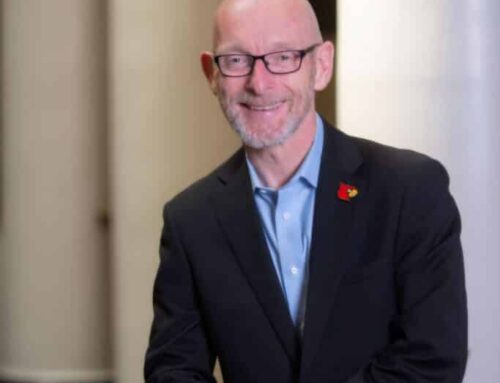By: Olivia Krauth
U of L officials launched Project Progress, a project focused on the impact of the height of the civil rights movement, during a rollout event at the University Club on October 14.
Sponsored by the Department of Pan-African Studies and the Office of the Vice Provost for Diversity and International Affairs, the project will span the next five years, devoting each year to exploring the major events of the “heroic period” of the American civil rights movement fifty years prior. The impact of years 1963 through 1968 will be examined through the lens of the past 50 years, using key issues such as homophobia, terrorism and socio-political movements as a guide.
“It is an initiative designed to deeply explore the major events, contributors, philosophies, organizations, legislations and real-world outcomes of the last five years of what has been dubbed the ‘heroic period’ of the American Civil Rights Movement,” said Ricky Jones, Pan-African Studies department professor.
In addition, the project will shed light on lesser-known events that also were a part of this impact.
“There were some things that happened in 1963, but there were also some things that happened in 1964, in 1965,” said Mordean Taylor-Archer, vice provost for diversity and international affairs. “This movement is to capture that five-year period of the civil rights movement.”
According to Taylor-Archer, the program is the first of its kind to take place on a college or university campus. Provost Shirley Willihnganz believes that a major research university, such as U of L, is the only place that could have a program like Project Progress.
“I see that what we have created here is at least enough faith in each other to be able to have the conversations, so that when things aren’t going well, we know each other well enough to sit down and talk about it and see what we can figure out to do better,” said Willihnganz. “It seems to me if a metropolitan university can model that for the larger community, and if we can use this project as a way to truly bring people together and have those conversations so that we can all learn what we need to learn so that we can go forward and not have to keep repeating the past.”
By addressing the impact of these events, the project hopes to demonstrate how crucial these events were to forming our culture and outlooks today.
“Fifty years later, sometimes you’re somewhere else and sometimes you’re exactly where were. How do we learned what worked, what made a difference, what changed things, how are we different and how is society different because this event happened? What led to it, what allowed it or disallowed it, and what happened next? Based on that, what can we now learn so that we can take the next steps,” said Willihnganz.
Plans of events for the rest of the academic year were presented at the rollout event. Jones stated that he plans on having three to four major programs a semester, with programs including lectures, classes and conferences. Programs will be free of charge.
The first lecture of the project will be “Before Bombingham and Beyond Trayvon: America’s War of Terror,” and will be held on October 22 at noon in room 275 of the Law School.




